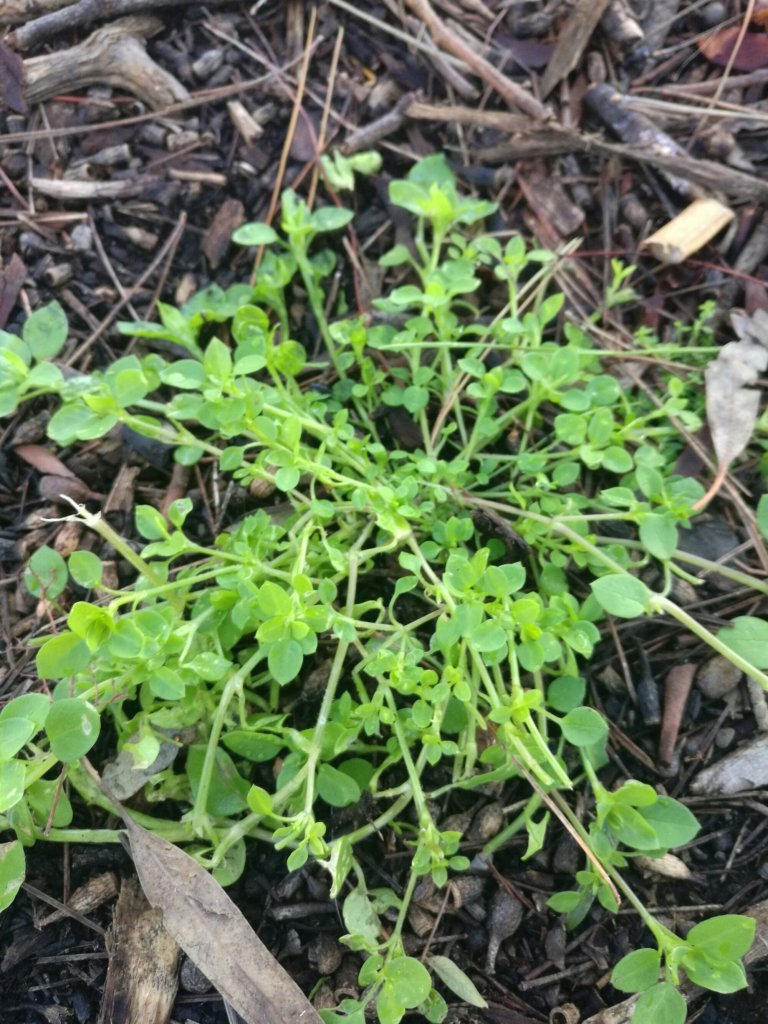
A sprawling patch of young Chickweed
Chickweed (Stellaria media) is a sprawling ground cover that comes out at the end of winter, just when our bodies need one of its main effects.
Chickweed is an excellent way to move those stagnant fluids in our bodies, you know. The toxins that build up over winter with all the good eating, the cold and lack of movement. It is known in herbalism as a lymphatic tonic. It helps get the lymph moving and draining as it should.
The main folk use for Chickweed’s cooling, soothing nature is for rashes and inflammations. Almost any kind of inflammation can benefit from Chickweed, but it comes into its own when used as a cream or poultice for rashes. It is a very effective way to get diaper rash under control. Eczema responds well to it too.
Anytime you see ‘red’, ‘inflamed’ or ‘irritated’ tissues, especially in Spring, they could benefit from Chickweed.
Being a soft plant, it is best used fresh to take advantage of all it’s water soluble goodness as it’s not very potent when it’s dry. When fresh, use Chickweed as a vegetable in winter and spring meals.
Identifying Chickweed
There are quite a few similar plants around at this time of year, so it’s important to learn how to identify it properly.

Leaves alternate up the stem

The characteristic Chickweed flower. It has 5 petals, so deeply indented that there appears to be 10

A line of hairs runs down the stem, on different sides between different nodes

Pull a stem gently apart and you will see an inner stem encased in an outer
The oiginal of this post was posted on our blog www.ligaya.online
I love chickweed my family uses the cream all the time.
Downvoting a post can decrease pending rewards and make it less visible. Common reasons:
Submit
Me too, though I've only really been using it for the last couple of years
Downvoting a post can decrease pending rewards and make it less visible. Common reasons:
Submit